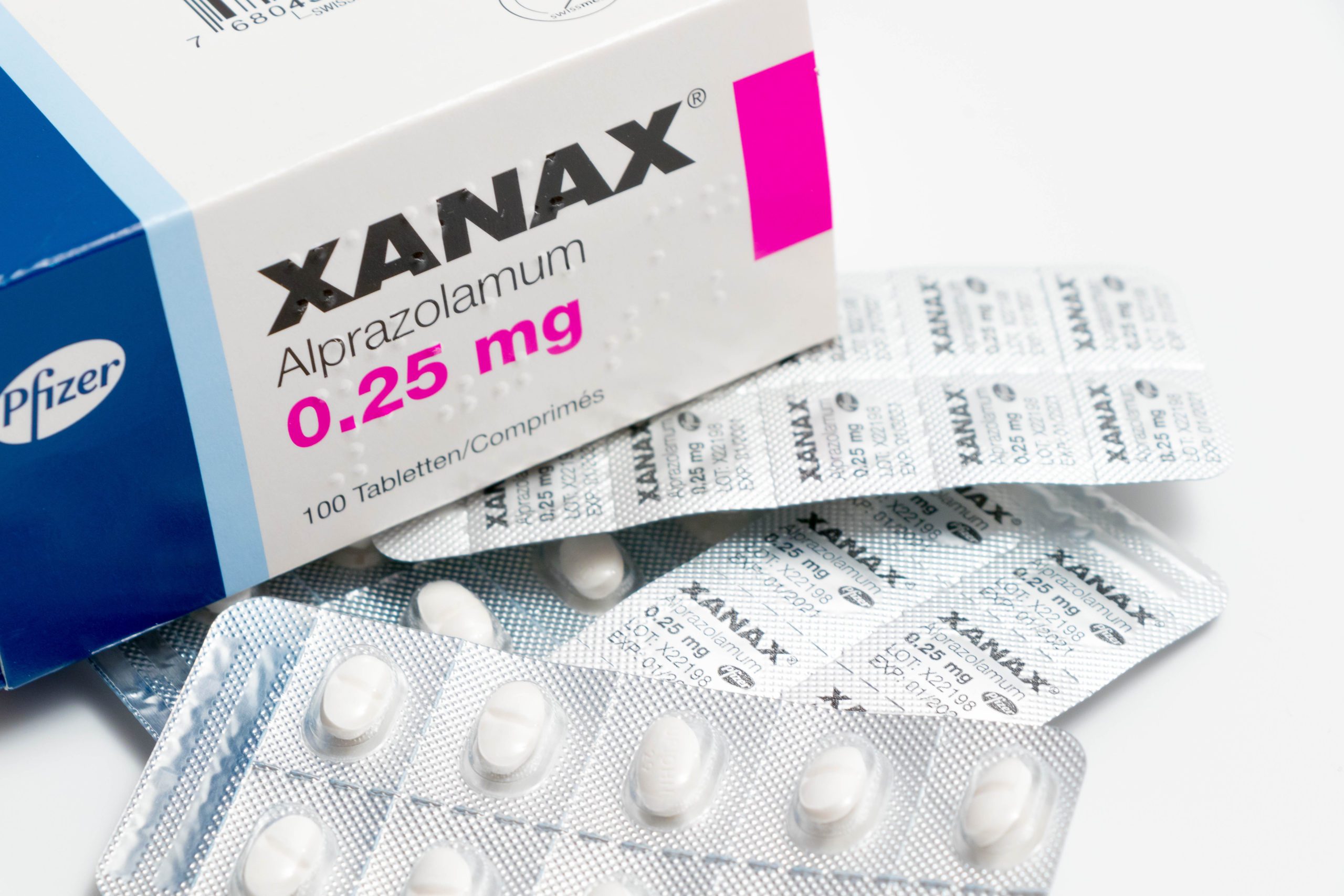We often believe that medications that are prescribed to us by a healthcare provider are safe. While this is usually true, there are prescription medications that can prove to be problematic. Xanax is one of those medications. Even if taken as prescribed, Xanax can be dangerous when taken long-term. If you have taken Xanax on a long-term basis, you have to be extremely careful in how you stop taking it. Abruptly stopping Xanax can be dangerous and is best done under the care of a physician. Your mind and body get used to functioning with it, but Xanax addiction treatment can help both become free. At Evolve Indy, we understand how prescription drug use can turn into an addiction. Our staff is here to help you break free in a safe and supported environment.
What Is Xanax?
Xanax is classified as a benzodiazepine. This class of drugs is used to treat generalized anxiety disorders, insomnia, seizures, social phobia, and panic disorders. As part of the benzodiazepine drug class, Xanax can cause drowsiness, lightheadedness, dizziness, difficulty concentrating, and many other side effects. Xanax and other drugs in the benzodiazepine class can be dangerous on their own and even more dangerous when mixed with other medications.
In 2019, sixteen percent of overdose deaths involving opioids also involved benzodiazepines. Xanax doesn’t just relax your anxiety; it sedates your body. Benzodiazepines are a depressant, which means that they depress the functions of your body including your breathing. If you take too much Xanax or mix it with drugs like opioids or alcohol that also depress your breathing, it can be fatal.
Is Xanax Addictive?
The U.S. Food and Drug Administration requires a warning on all Xanax because of addiction and misuse risks. Using Xanax doesn’t just lead to addiction; it can lead to death. Drug overdose deaths involving benzodiazepines rose more than eight hundred percent from 1999 to 2017. You should take drugs like Xanax on a short-term basis only because physical dependence can occur after just two weeks of use. Xanax used for an acute bout of anxiety can be safe, but Xanax is not recommended for chronic long-term conditions. Long-term use affects the pathways in your brain and makes it much harder to stop taking the drug. Additionally, long-term use and dependence lead to needing more to be able to function. Often this leads to having to buy the medicine illegally, and, as you might imagine, this is much more dangerous.
How Do I Know I Need Xanax Addiction Treatment?
Knowing that it’s time to seek treatment is not a perfect science. However, if you think that you need Xanax addiction treatment, you probably do. If you find that you cannot cope with everyday life without Xanax or begin to go into withdrawals when you don’t take it, it’s time for treatment. Even if you are taking your Xanax as prescribed, you may need treatment to stop taking it. This is especially true if you’ve been taking Xanax for a long-time. The longer you have been taking them, the harder it is to stop taking them. Long-term use leads to your being psychologically dependent and your body being physically addicted. Withdrawing from Xanax can be very dangerous. Withdrawal symptoms include abdominal cramps, increased anxiety, blurred vision, difficulty sleeping, headaches, severe depression, paranoia, delusions, and even seizures. The safest way to stop taking benzodiazepines is under a healthcare provider’s care in a medical detox setting.
Evolve Indy Is Here To Help You With Your Addiction
At Evolve Indy, we understand the dangers of benzodiazepines and we have Xanax addiction treatment programs to help set you free from Xanax. We will guide you safely through detox and then create a treatment plan to meet your needs. We care about your success in recovery. We have a wide range of programs to meet your needs, including an Intensive Outpatient Program (IOP), Outpatient Addiction Treatment (OP), Community Housing, and Family Therapy Addiction Treatment. Contact us today to see how we can best support you in your journey to sobriety.

